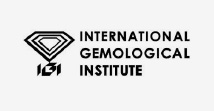
Gem Enhancement
The practice of enhancing the quality of gemstones has a long standing tradition that can be traced back to ancient Egypt, when emeralds were soaked in colourless oil to make them appear more beautiful. This practice continues today among other methods that are widely practiced in the industry. Years ago it was also discovered that heating certain gemstones could produce remarkable changes in their colour. It is a well-known fact that enhancement practices enrich the appearance of the gemstone.
The following methods can improve the colour, clarity and durability of a gemstone:
Common Gemstone Enhancements
Some of the enhancements often applied by miners and lapidaries are:
Heating
For many centuries, heating of gemstones has been used as an enhancement treatment to improve their colour and clarity. It is a part of the standard polishing and finishing process for many coloured gemstones. The result is an enhanced colour and clarity that is permanent. Since many gem experts agree that heat exposure is synonymous with the forces of nature that form gemstones, this technique is considered acceptable.
Oiling
The process of filling a gem’s surface fissures with colourless oil in order to improve its appearance is referred to as oiling. The technique was adopted centuries ago by gemstone merchants who found that immersing emeralds in colourless oils made them look clearer to the unaided eye. It continues to be practiced today with many coloured gemstones.
Fracture Filling
Fracture filling, also known as clarity enhancement, refers to the filling of surface breaking cavities or fissures in a gemstone with a colourless glass, plastic or similar substance. This is carried out to improve durability, colour and transparency, and may add some weight to the stone.
Diffusion
This is a gemstone treatment that alters the colour of stones through a combination of chemical exposure and heat treatment.
Irradiation
This process refers to the alteration of a gemstone's colour using radiation. Irradiation is frequently followed by a heating process. The more vivid, enhanced colour of irradiated gemstones is permanent. Blue topaz is typically produced by irradiation.
Bleaching
This enhancement technique involves the use of chemicals or other agents to lighten a gemstone or create more uniform colours on porous gems, such as corals and turquoise.
Dyeing
In some gemstones, improvement of just the colour is required. A colouring matter is added to gemstones to give them a new colour, intensify the existing colour or improve on colour uniformity. Pearls and Onyx are stones that are commonly dyed.
T.T. GEMS ENHANCEMENT POLICY
T.T. GEMS offers its customers only authentic gemstones of the highest quality. Our coloured gemstones are inspected by our trained gemologists to ensure they meet our stringent quality standards. We ensure that enhancement techniques are used to improve the beauty of the stone and nothing else.
Some gemstones require more care than others. The table below will help you understand common enhancements used on each gemstone. The care list will tell you if some gemstones need more attention than others, thereby retaining their beauty and letting you value them for generations.
| Gemstone | Enhancement Method | Use | Stability | Care | Notes |
|---|---|---|---|---|---|
| Emerald | Oil | Common | Fair / Very Good | Special | Avoid Chemicals, Ultrasonic |
| Emerald | Resin | Common | Fair / Very Good | Special | Avoid Chemicals, Ultrasonic |
| Ruby | None | N/A | N/A | Normal | N/A |
| Ruby | Heat | Common | Excellent | Normal | N/A |
| Ruby | Fracture Filling | Common | Good / Poor | Special | Avoid Heat / Ultrasonic / Chemicals |
| Sapphire | None | N/A | N/A | Normal | N/A |
| Sapphire | Heat | Common | Excellent | Normal | N/A |
| Sapphire | Beryllium Mass Diffusion | Common | Very Good | Normal | N/A |
| Sapphire | Surface Diffusion | Common | Good | Special | Avoid Repolishing |
| Spinel | None | N/A | N/A | Normal | N/A |
| Rubellite / Tourmaline | None | N/A | N/A | Normal | N/A |
| Rubellite / Tourmaline | Heated | Common | Excellent | Normal | N/A |
| Tanzanite | Heated | Common | Excellent | Special | Avoid Ultrasonic / Sudden temperature changes |
| Chrysoberyl | None | N/A | Excellent | Normal | N/A |
| Chrysoberyl Cats Eye | None | N/A | Excellent | Normal | N/A |
| Alexandrite | None | N/A | N/A | Normal | N/A |
| Aquamarine | Heated | Usually | Excellent | Normal | N/A |
| Peridot | None | N/A | N/A | Normal | N/A |
| Peridot | Heat | Occasional | Good/Fair | Special | Avoid Heat/Ultrasonic/ Chemicals |
| Kunzite | Heated | Common | Fair | Special | Avoid strong light/Ultrasonic |
| Opal | Oil | Occasional | Fair | Special | Avoid Heat/Ultrasonic/Chemicals/ sudden temperature changes |
| Pearl-Natural | Bleached | Common | Very Good | Special | Avoid Chemicals |
| Pearl-Natural | Dyed | Rarely | Good/Very Good | Special | Avoid Chemicals/Ultrasonic |
| Topaz-Blue | Irradiated | Usually | Excellent | Normal | N/A |
| Quartz - Citrine/Ametyst/Lemon/Smoky | Heated | Common | Excellent | Normal | N/A |
| Garnet | None | N/A | N/A | Normal | N/A |
| Zircon | None | N/A | N/A | Special | Avoid abrasives |
| Zircon | Heated | Rarely | Good | Special | Avoid abrasives/Strong light |
All our gemstones are officially certified by leading laboratories.







